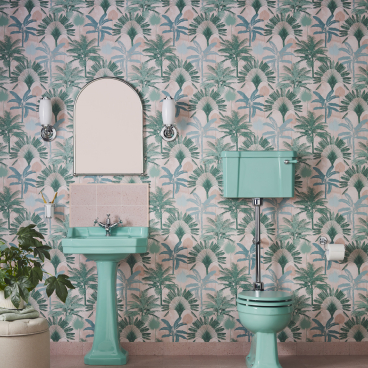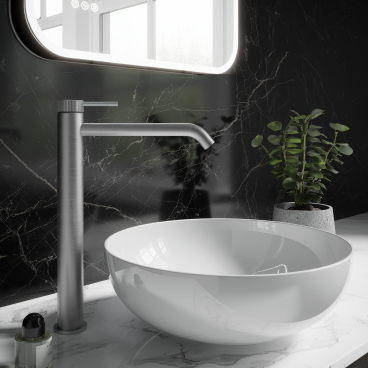Amtico backs biomaterials for the built environment: Introducing the new bio-attributed LVT.
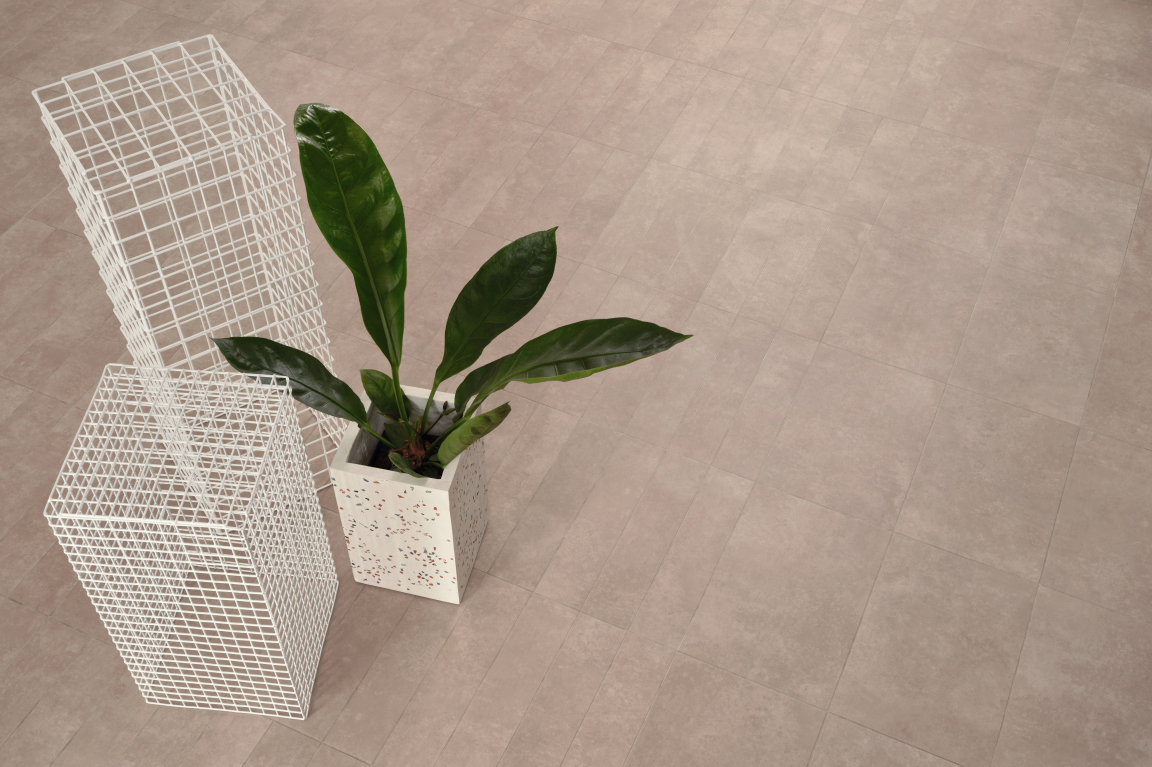
Amtico Bio - Amtico Spacia Earth
The biomaterials realm is expanding rapidly, with bio-interventions such as algae derived bio-plastics and bacteria grown pigment becoming wide-spread knowledge across the design world. These experimental insights into re-thinking materiality are crucial for a sustainable future - but how close are we to specifying them?
According to this United Nations report, more than two thirds of the global population will live in cities by 2050. This staggering spike in people heading to the metropolis presents the built environment with significant challenges, with need to accommodate these people through building more living and working spaces, whilst also tackling the construction industry’s current colossal impact on the environment.
We need to adopt a holistic approach to building design and construction - and fast. These figures highlight the urgent need for more sustainable urban planning, utilising energy efficiently from renewable sources, as well as the pinnacle prioritisation of sustainable materials. A buzzword circulating more than ever now, by sustainable we mean; non-toxic, bio-degradable and sourced from responsible suppliers that are operating within a circular manufacturing process.
At Material Source, we are passionate advocates of the application of biomaterials in the built environment. This is no longer a speculative concept, their time is now.
Tackling this pressing issue face on is British manufacturer, Amtico with the recently released bio-attributed LVT – Amtico Bio. Amtico has listened to the demands of the industry and more importantly, the environment, revealing the company’s first bio-attributed, low carbon LVT flooring for specifiers.
Hitting the highest of ESG requirements, the PVC resin used for Amtico Bio saves a whopping 90% of C02 emissions being released into the atmosphere during its production, in comparison to the production of fossil fuel derived PVC.
This is due to the utilisation of a sustainable PVC manufactured from two streams of renewable raw materials – one from the paper pulping industry and the other through recovered cooking oil.
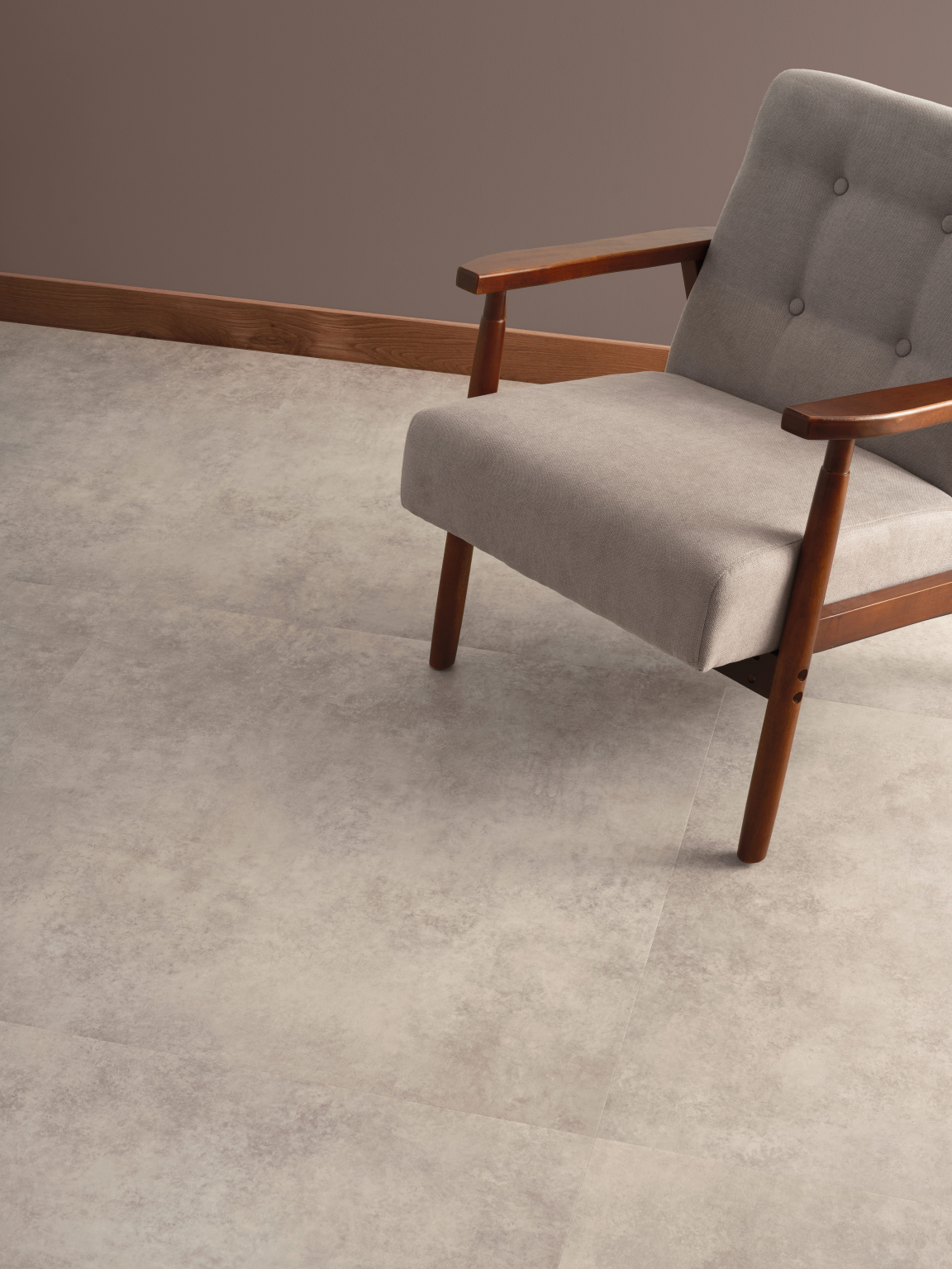
Amtico Bio - Amtico Spacia Fairford Stone
The fast-growing trees that are sustainably maintained specifically for the paper pulping industry produce a by-product of Crude Tall Oil (CTO). This biomass can be processed into many useful carbon based chemicals, including ethylene – used in the production of PVC.
Used cooking oil (UCO) is the secondary source of biomass Amtico make use of. Containing no impurities and performing equally to CTO and fossil fuel based crude oil.
In both instances, the biomass derived ethylene is used to create a chemically identical PVC resin with electricity generated from green energy sources for the LVT flooring, achieving the same exempla designs and quality you would expect from Amtico.
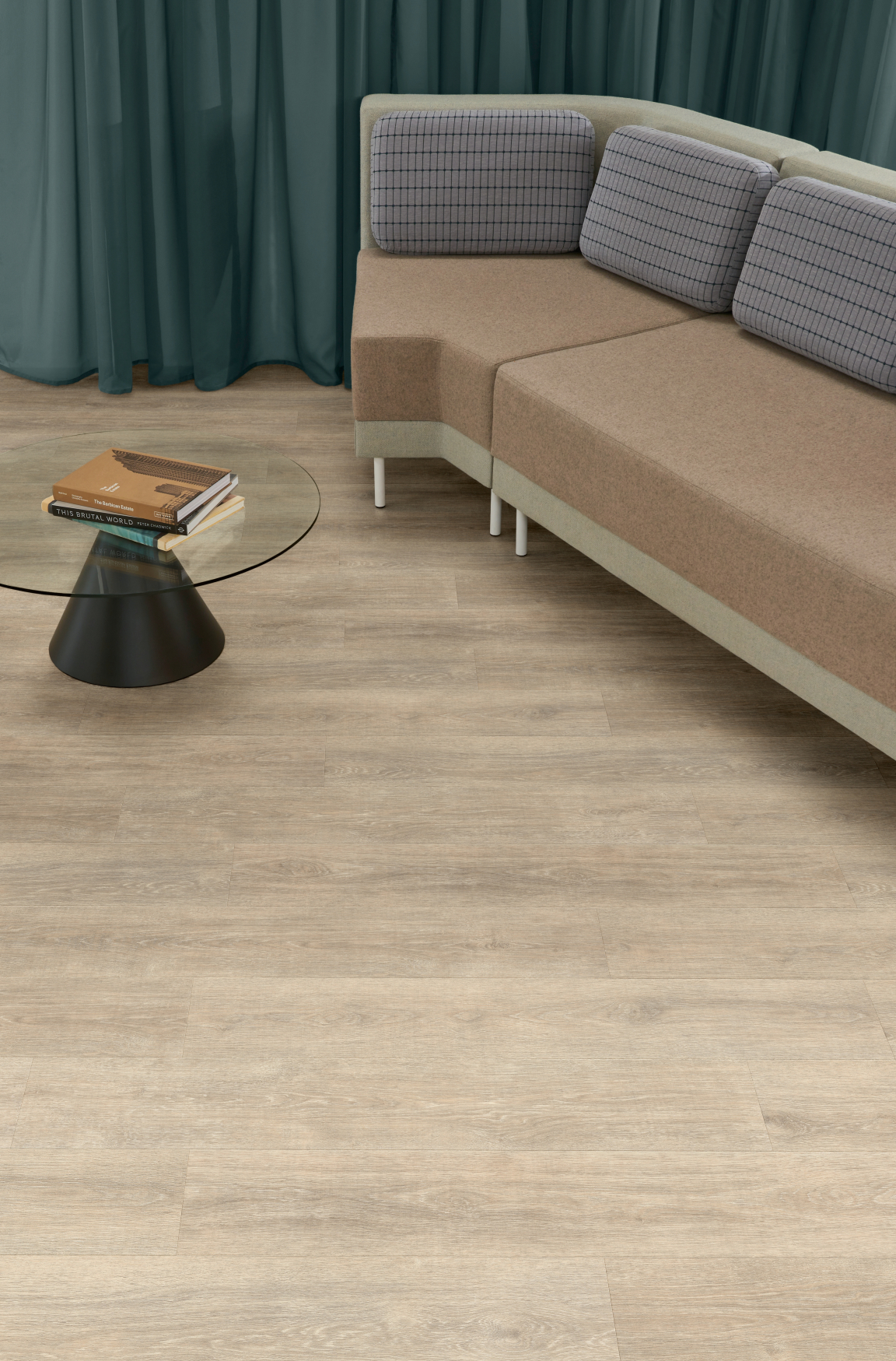
Amtico Bio - Amtico Form Shell Oak laid in Stripwood.
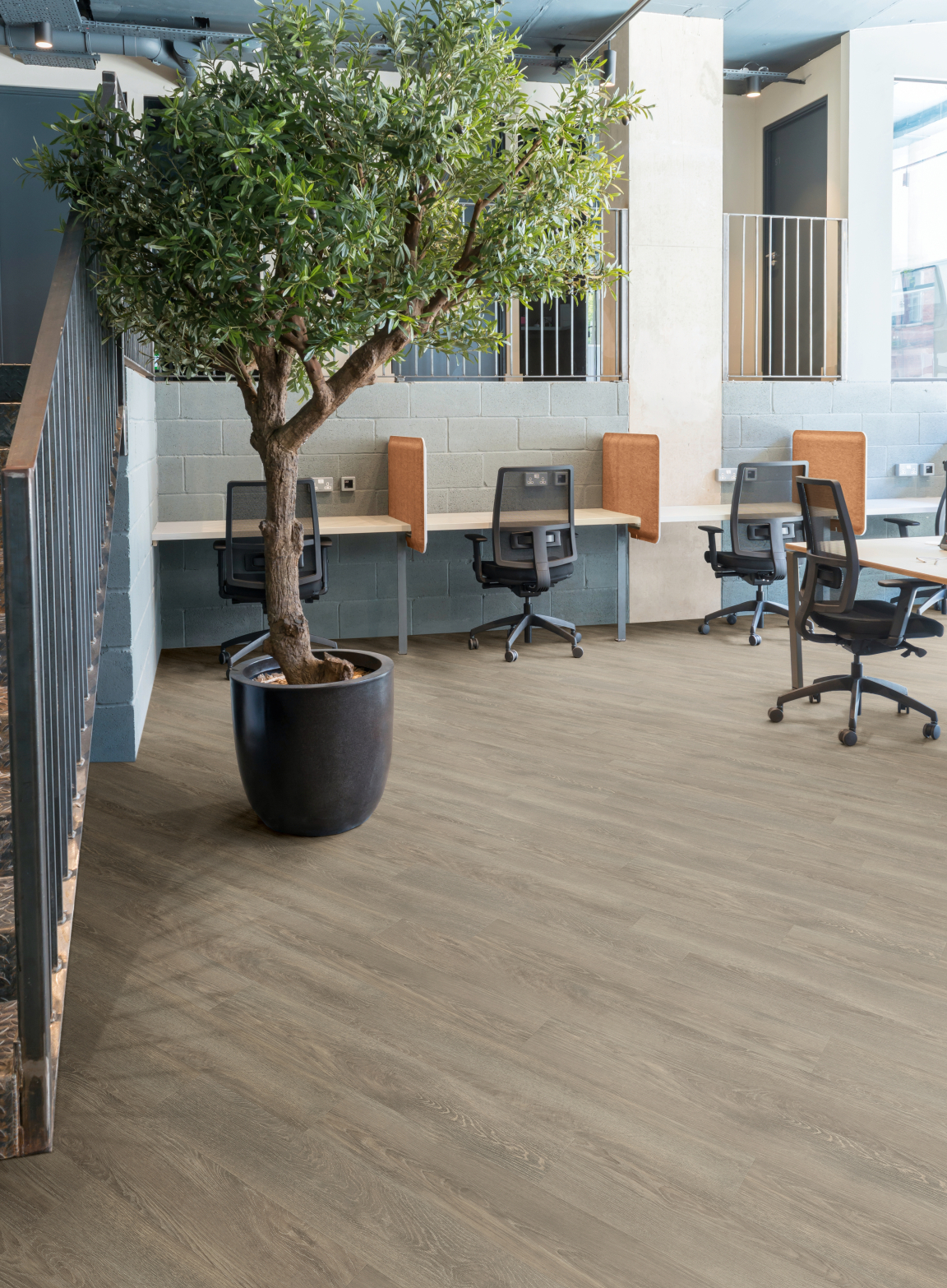
Amtico Bio - Amtico Form Kalmar Oak
This bio-attributed offering can be specified across standard planks and tiles in the Signature, Spacia and Form collections, with the bio content varying across collections. When specifying one of Amtico’s core LVT collections, the required amount of bio-attributed PVC is carefully sourced to make the order, setting for a later transition away from fossil fuel dependency.
To ensure total transparency and peace of mind to their customers, Amtico has been certified to offer bio-attributed LVT by the International Sustainability and Carbon Certification body (ISCC). The ISCC chain-of-custody certification guarantees that every element along the supply chain is ISCC certified.
This assures that all ISCC requirements have been met and any sustainability claims made by them and other manufacturers at the end of the supply chain are credible and trustworthy, assuring specifiers guaranteed certification that Amtico has purchased PVC derived from Biomass and has followed the auditing process.
To find out more about Amtico Bio, click here




